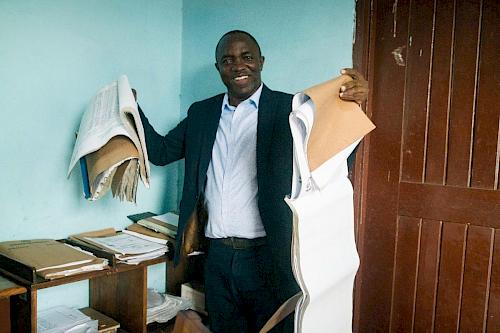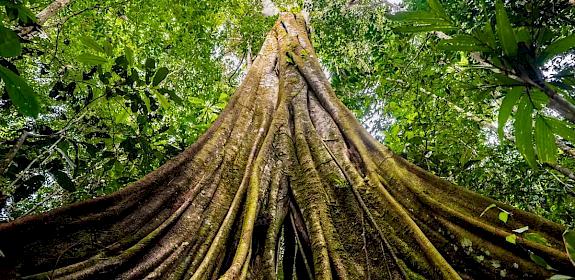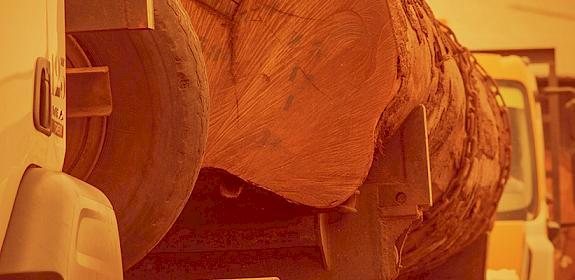Tackling deforestation with timber tracker
A success story from Tanzania: an innovative tracking system is helping Tanzania Forest Services manage the country’s extensive forests, so that degraded woodland is springing back to life and illegal deforestation is being stamped out.
Timber Tracker of 2016 was like a seed planted in good soil. The seed has grown up; we see its benefits. Where streams had dried up, streams are flowing. Even in some areas we see wild animals like elephants, lions and baboons are coming back. The country’s conservation efforts are paying off."
Harold Chipanha, Assistant Commissioner at Tanzania Forest Services
As well as helping degraded forests to recover and providing local people with natural resources, introducing the timber tracking system has led government revenue from forest products to increase by nearly 50% - a result of cracking down on illegal trade.

About a decade ago, the Tanzania Forest Services (TFS) decided to tackle an outdated paper-based forest management system, so as to protect the precious forests that cover more than half the country, and on which so many wild species and local communities rely.
Forests are the most nature diverse systems on land, home to more than 80% of terrestrial animals, plants and insects. Around 1.6bn people, including more than 200 indigenous cultures, depend on forest for their livelihood. 55% of mainland Tanzania is covered in forests, that is, 8 million hectares of natural forest and plantation.
TRAFFIC introduced the idea of a simple electronic ‘timber tracker’, and piloted it at a single checkpoint. That was 2016. Now, Timber Tracker has grown into a nationwide sophisticated online system called FREMIS (which stands for Forest Resource Management Information System), developed by Harold’s ICT team.
The simple hand-held tracking devices, which are similar to supermarket self-scanners, are used at all checkpoints across Tanzania – more than 100 of them – whenever anyone is transporting any produce harvested from nationally owned forests or imported – whether wood, charcoal, bees or honey.
At each checkpoint, TFS officials scan the driver’s QR code, which links to the permit information on FREMIS. The official checks the actual consignment matches the trader’s permit, and takes a photograph of the front and back of the vehicle. These photos are uploaded immediately onto FREMIS, so that officials at the next checkpoint can check nothing has changed in the appearance of the vehicle or the cargo in between checkpoints.

“I can log into my FREMIS system as a licensing officer, and I can see the movement of forest produce all over Tanzania,” says Bhoke Masisi, Licensing Officer for TFS.
"We knew some dealers were skipping checkpoints, but we didn’t know the magnitude, until we introduced the automatic penalty system in 2022. If you saw the graph which shows the number of vehicles that were apprehended because they skipped checkpoints in that particular year, it was shocking, because it went very high. But the following year, the graph dropped a lot."
The Timber Tracker system has helped us increase compliance with our clients.”
Bhoke Masisi, Licensing Officer for TFS
TRAFFIC now aims to introduce Timber Tracker to more countries, starting with the neighbours, so that the benefits of sustainable and legal trade in forest products can be extended to many more communities.
The next step for Timber Tracker is to replicate it to other neighbouring countries. It is very important, because by introducing this system and integrating it, we can counter cross-border trafficking of timber."
William Mallya, TRAFFIC East Africa Project Officer
Harold added: “Timber Tracker, now FREMIS, has assisted greatly in ensuring there is sustainable forest conservation. Now, the forests are being conserved properly. Everything is done through IT systems. The traders follow the regulations that have been put in place."





